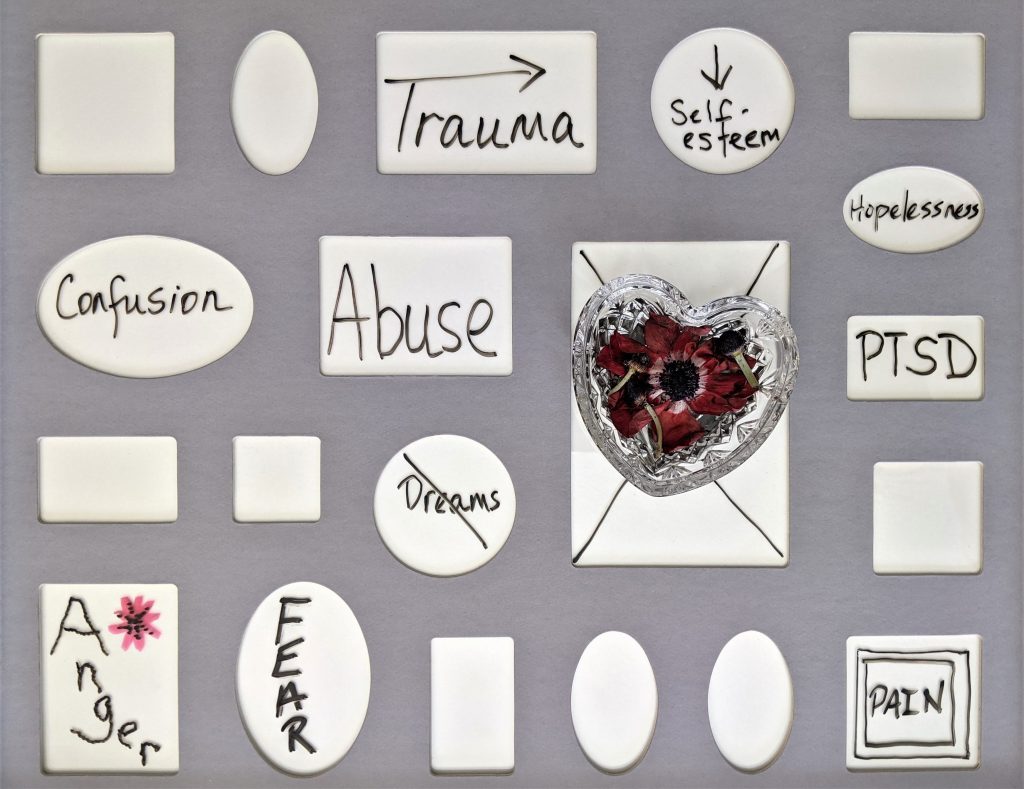Post-Traumatic Stress Disorder is something that can affect anyone – in fact it’s estimated that around 7-8% of the population might experience it at some point in their lives and it can occur after a person is exposed to a specific event that feels overwhelming and out of the ordinary for them.

What can cause PTSD?
PTSD can be caused by the following types of situations:
When a person is exposed to actual or the threat of: death, serious injury or sexual violence.
Interestingly, it doesn’t have to happen directly to them. It can also occur through witnessing, hearing about or being exposed to traumatic events over a period of time.
So the victim of a random attack on a night out, the woman who has a particularly complex childbirth experience, a passerby who witnesses a serious road traffic accident, people (civilians or service personnel) who experience military conflict, someone who’s diagnosed with a life-threatening illness or emergency workers who regularly deal with medical emergencies may all be vulnerable to PTSD.
Is PTSD inevitable?
The really good news is that no, it isn’t.
Our brains are remarkably resilient and, given the right support, care and time, we can recover from terrible things.
But sometimes that support isn’t in place or we may have had other things happen (or happening) in our lives that means our brains struggle to process what we’ve gone through and the symptoms of trauma don’t fade away after a period of time.
Symptoms of PTSD
You may find yourself experiencing the following:
- Re-experiencing: having nightmares or flashbacks of what happened, memories that feel overwhelming and when reminded of the event in some way you might have physical responses such as fast breathing, or your heart racing.
- Avoidance: having ‘gaps’ in your memory of what happened, feeling detached from other people and avoiding anything (places, people, sights, sounds, news reports) associated with the event.
- Difficulties with mood: persistently experiencing fear, blame or guilt, losing interest in activities you previously enjoyed, struggling to feel joy or affection for others.
- Reactivity: feeling on edge, finding it hard to relax or switch off, difficulty sleeping or maintaining focus on tasks, being jumpy and nervous.
How can therapy help with PTSD?
Talking therapies can help you recover from trauma in several ways:
- You can tell your story, to someone who wasn’t part of it themselves and who can listen to whatever feelings and thoughts you have, without getting distressed themselves.
- But you also don’t have to tell the ‘story’ at all, if you don’t want to. This might feel too much for you, and that’s ok. We have other ways to help you express and work through how you’re feeling without you having to re-live the experience itself.
- We can help you find ways to manage your feelings and symptoms, so that day to day life is more manageable.
- You’ll be supported to accept that what happened to you, happened. We can help you develop different (more helpful) ways of understanding and processing what you went through.
If you think you may have been suffering with PTSD, then please don’t suffer any longer. You can recover and there is help available. Just message me via the Contact page.

Leave a Reply